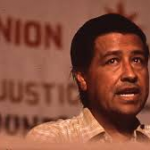The Philosophy Department is happy to announce BC’s PHILOSOPHY TALKS series, free and open to public, as well as to BC classes.
All talks are held in the Library Media Center, Event Center, Room D06 (Main Campus Map)
Archives
The Doctrine of Double Effect
Mark Storey, BC Philosophy Department
Wednesday, Jan. 30, 10:30 a.m. -11:20 a.m.
Mark Storey, Philosophy Talks flyer (pdf file)
The Limits of PHIL 102: Is Homosexuality a Contemporary Moral Problem
Benjamin Hole, Ph.D., BC Department of Philosophy
June 11, 11:30 a.m. -12:20 p.m. Benjamin Hole, Ph.D., Philosophy Talk Flyer (pdf file)
Willpower is a Skill
Michael Funke, Ph.D.
May 31, 10:30 a.m. -11:20 a.m. Michael Funke, Ph.D., Philosophy Talk Flyer (pdf file)
The Irreducibility of Free Will
Timothy Linnemann, BC Department of Philosophy
May 22, 12:30 p.m. -1:20 p.m. Timothy Linnemann, Philosophy Talk Flyer (pdf file)
Presentation Notes (pdf file)
“Is it Immoral to be Super Rich? A Philosophical Discussion”
Paul Herrick, Ph.D., Shoreline Community College
April 30, 10:30 a.m. – 11:20 a.m. Paul Herrick, Philosophy Talk flyer (pdf file)
“Making Sense of Karma in the Bhagavad Gita”
Mark Storey, BC Department of Philosophy
April 9, 10:30 a.m. – 11:20 a.m. Mark Storey, Philosophy Talk flyer (pdf file)
“Human Enhancement, Nature, and Virtue”
Benjamin Hole, Ph.D., BC Department of Philosophy
March 12th, 1:30 p.m. – 2:30 p.m. Benjamin Hole, Philosophy Talk flyer
(pdf file)
“Lessons from NoDaPL: Decolonizing ‘Allyship’ for Indian Country”
Andrea Sullivan-Clarke, Ph.D., BC Department of Philosophy
Nov. 13, 11:30 a.m. – 12:30 p.m. Andrea Sullivan-Clark, Philosophy Talk Flyer (pdf file)
You are invited to the BC Philosophy Department’s third Winter Quarter presentation of Philosophy Talks. Our focus this time will be on the philosophy of non-violence as a means of advancing social justice, and as articulated by Mexican-American Cesar Chavez.
Mark Storey, BC Philosophy | Thursday, March 12, 2015 | 10:30 a.m. -11:20 a.m. | Location: LMC Event Center (D126).
Chavez was a dynamic power in pressuring corporate farmers in California and beyond to provide improvement in pay to field workers, respect for female farm employees, and safety for workers against pesticides and herbicides. While many thoughtful and not so thoughtful activists urged violence, Chavez argued that non-violence was both morally and pragmatically required. Storey will provide a brief introduction to how Chavez’s position on non-violence contrasts tellingly with activists like Ward Churchill, Che Guevara, Franz Fanon, Gandhi, and Martin Luther King Jr.
“TAKIN’ IT TO THE STREETS: BIKE / BUS ACTIVISM”
Deric Green et al
Tuesday, March 18, 2014 10:30 a.m. -11:20 p.m.
Gruen will facilitate a panel discussion addressing how Critical Mass and other groups have used civic action to advance social change regarding urban transportation.
For further information, please contact Mark Storey at 425-564-2118 or mark.storey@bellevuecollege.edu.
“MORAL LIMITS OF CIVIL DISOBEDIENCE”
Mark Storey
Thursday, March 6, 2014 10:30 a.m. -11:20 a.m.
Storey will present a position outlining the moral concerns of non-violent civil disobedience as articulated by Mahatma Gandhi, Martin Luther King, Jr, and John Rawls.
CYBORG FEMINIST ETHICS by Zoe Aleshire
Tuesday, Nov. 26, 2013 | 11:30 a.m. -1:30 p.m. | at the LMC Event Center
Wed. Nov. 6, 2013 at 10:30 a.m. in the LMC Event Center (D106). This time we bring you our own STEVE DUNCAN who will address the highly influential John Dewey.
While this talk will be appropriately accessible for students, it is especially apt for BC faculty and administrators. John Dewey has shaped the character of education as we know and practice it as much as anyone over the past century. This talk will be an opportunity for educators to critically reflect on why we teach the way we teach.
Monday, Nov. 4, 2013 at 11:30 a.m. in the LMC Event Center (D106).
Join us for our first Philosophy Talk of the academic year
The presenter,Greg Damico, promises us a truly accessible talk on Aristotle. Sounds like a feat and a treat. All are welcome as always. Here is the abstract:
ARISTOTLE ON DIFFERENT WAYS OF BEING THE SAME:
Aristotle speaks freely about different notions of sameness that he employs throughout the corpus. You and I are the same _in species_, for example, since we are both human beings, whereas a man and a dog are the same only _in genus_, since they are both animals. A more troublesome notion is sameness _in number_. This sure sounds like our modern notion of (numerical) identity, but the trouble with such an interpretation is that Aristotle seems to have yet another notion of sameness that is even _narrower_ than sameness in number–something he calls sameness “in being”. Thus Aristotle will sometimes–and often as a way of solving various puzzles–describe things as “one in number but two in being”. I set this all out and then briefly discuss how we might interpret our way out of these textual difficulties.
Last Updated May 23, 2023
